Following extensive market research to identify the greatest areas of need for working communications professionals and employers, we introduced an updated curriculum starting with the 2021 entering cohort. Our rigorous, project-based curriculum allows students to explore the economic drivers and technological changes affecting media and communication organizations today. Students learn how to:
- Lead, plan strategically and harness agile, entrepreneurial thinking for beneficial change and innovation
- Find trends, patterns and stories in data and communicate insights that will drive impactful decision-making
- Create compelling stories across media platforms, deliver unforgettable user experiences and develop visual literacy to succeed in a design-focused world
The 30-credit program consists of nine courses taken over two years and one summer term (two courses per semester, one during summer), followed by a final thesis project in the last semester. There is a set curriculum, a prescribed list of courses that are designed to be taken in order. Students benefit from intellectual exchanges with peer professionals and opportunities to apply course lessons in real time, bringing immediate impact to their organizations.
Students also participate in two required on-campus experiences, a two-day orientation at the beginning of the program and a five-day summer residency the following May.
Click each course or experience title to expand its description.
Fall 1
On-campus Experience: Orientation
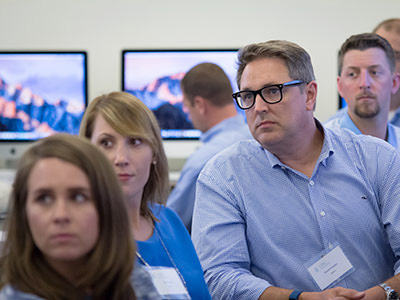
Students begin the online master’s program by gathering in person for an August orientation on campus in Chapel Hill. A week before classes begin, you’ll spend two days in Carroll Hall getting to know the curriculum, your faculty, graduate students from other UNC Hussman programs and your cohort of fellow working professionals.
You’ll learn about the format and expectations for your first-year classes and hear from program alumni about strategies for learning online and balancing school with family and work responsibilities. Training sessions about library resources and technical tools provide the technical details you need to get started.
MEJO 710: Psychology of Audiences
Why do audiences do what they do? How do you harness and interpret data to help drive communication strategy? With the fields of social psychology, consumer behavior and market research as your guides, you will identify an audience’s motivations, values and attitudes so you can more effectively analyze the what, why and how of audience behavior. Explore existing and emerging applied research techniques such as focus groups, eye-tracking, surveys and facial mapping.
This course is designed to help you:
- Collaborate with market and consumer research specialists
- Use the latest research technologies to understand and interpret audience insights
- Execute tactics to translate those insights into action plans
- Develop strategies to build social capital with target constituents, brand influencers and opinion leaders
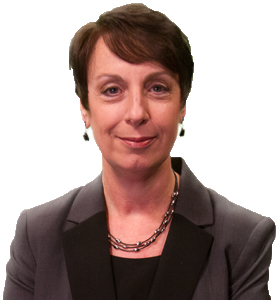
Instructor
Rhonda Gibson
Dr. Gibson's most recent research focuses on media portrayals of sexual minorities and the influence of these portrayals on both individual perceptions and public conversations.
MEJO 711: Multi-platform Storytelling
How do you communicate a message through multiple platforms? How do you balance and navigate today’s blurring roles for media professionals, who now serve as producers/consumers, writers/readers and message senders/message receivers? Create flexible and strategic stories that can be disseminated through a variety of channels, including social media platforms, podcasts, video and text.
This course is designed to help you:
- Express yourself concisely and clearly in written and visual communication
- Distill and transform relevant, credible information into usable and compelling messages for content marketing, social media or journalistic storytelling
- Create flexible and strategic stories that can be disseminated via multiple platforms

Instructor
Andy Bechtel
Professor Bechtel teaches editing for print and digital media. He's interested in headline writing, social media and alternative story forms.
Spring 1
MEJO 713: Media Analytics
How do you extract useful information and knowledge from data in digital and social platforms? What do data actually mean, and how do you use that knowledge strategically? Learn to apply data in a variety of ways, from data-driven storytelling to creating actionable insights.
This course is designed to help you:
- Identify the appropriate analytics tools for projects
- Use data analysis to strategically respond to challenges and opportunities
- Uncover stories in data
- Make evidence-based decisions

Instructor
Xinyan (Eva) Zhao
Dr. Zhao’s research focuses on the roles of social media and social networks in crisis, risk and health communication using computational and quantitative methods.
MEJO 722: The Business of Media
What are the broad economic issues affecting today’s media landscape? How do you evaluate the strategies of your business or your competitors? Explore these questions for the industry through a comparative case study approach, investigating specific business challenges confronting start-ups and established companies such as Ogilvy, Comcast, Bloomberg, The New York Times, Disney-ABC, Google, Facebook and Amazon. Analyze the drivers of other content providers, such as streaming services, online aggregators and commerce sites, to gain lessons you can apply across industry segments.
This course is designed to help you:
- Understand methods and framework to assess future opportunities and risks of business enterprises you work for, compete against or create yourself
- “Talk business” with current and future employers, including CEOs, CFOs and CMOs
- Use processes and frameworks to create a business plan for start-ups and legacy organizations

Instructor
Erica Beshears Perel
The director of the Center for Innovation and Sustainability in Local Media, Professor Perel's work focuses on building a better future for local news and the next generation of journalists, communicators and media makers.
Summer 1
On-campus Experience: Summer Residency
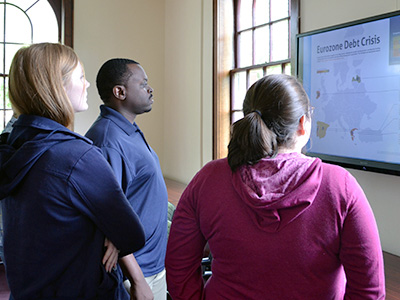
Following the first year of instruction, students attend a weeklong residency (Monday-Friday) in May. In addition to further connecting with your classmates, you’ll work with UNC Hussman faculty and equipment to shoot and edit an audio-visual storytelling project. You’ll also receive leadership training and have other chances throughout the week to get to know school faculty. Your summer and second-year instructors will introduce themselves and their courses.
Significant time during the residency is dedicated to preparing students for the final thesis project. The program director will outline the project process and requirements. She will meet with you individually to discuss your preliminary ideas, and a panel of alumni will share their experiences.
MEJO 723: Visual Literacy and User Experience
What is distinctive, usable and understandable design? How is it central to a communicator’s success? In a flexible, creativity-based learning environment, you will explore best practices in online user experience, user interface design and website/app usability testing.
This course is designed to help you:
- Learn methods to envision and experiment with innovative solutions to user needs
- Develop strategies to map and optimize the user journey through visual elements
- Master visual literacy techniques to ensure success when managing digital design decisions
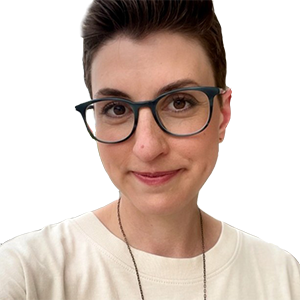
Instructor
Lexi Namer
Professor Namer is a designer, developer and leader passionate about creating ethical and beautiful products for the digital space.
Fall 2
MEJO 720: Communications Strategy and Planning
How do you determine when and where to engage with target audiences? With all the media options available today, how do you decide what to do and also what not to do, based on the consumer decision journey? Develop the strategic skills you need to execute a go-to-market plan, enabling you to market anything to anyone.
This course is designed to help you:
- Learn methods to find the underlying business problem and set attainable communications goals
- Develop strategies to identify and engage with target audiences
- Consider approaches to craft a compelling message that spreads
- Identify strategies to identify appropriate paid, owned, earned and shared media channels that build traction

Instructor
Peter Sherman
Professor Sherman is the former executive vice president at Omnicom Group, one of the world’s largest marketing service companies, where he drove marketing innovation and integration.
MEJO 724: Reputation Management
How do you strategically measure, monitor and manage the organizational assets of brand image and reputation? What is the impact of reputation in business practice? Through a comparative case study approach, learn how to assign value to and manage reputation, regardless of your professional role and whether you work in the government, corporate or nonprofit sector. Examine how crisis communication and corporate social responsibility influence reputation.
This course is designed to help you:
- Learn methods to build your company’s brand and reputation
- Develop strategies to measure and monitor reputation
- Create strategies to recognize threats, assess risks and plan messages to manage reputational impact
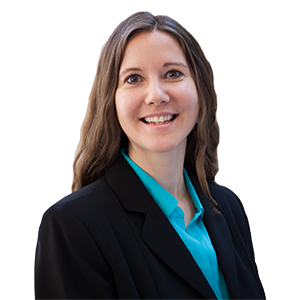
Instructor
Lucinda Austin
Dr. Austin’s research focuses on the influence of social media on health and crisis communication and publics’ perspectives in corporate social responsibility and organization-public relationship-building.
Spring 2
MEJO 719: Leadership and Entrepreneurship
How do you mobilize an organization to action, regardless of your job title? How do you influence decisions up, down and across your company? Drawing lessons from organizational psychology and change management, you will explore challenges faced by today’s media innovators and anyone hoping to make an impact in government, corporate or nonprofit arenas. You will learn how to drive change, to constantly adapt your thinking and to innovate more effectively, whether in an established organization or a start-up.
This course is designed to help you:
- Develop strategies to encourage entrepreneurial leadership within an organization
- Learn methods to amplify impact on decisions throughout your organization
- Execute strategies to manage industry change
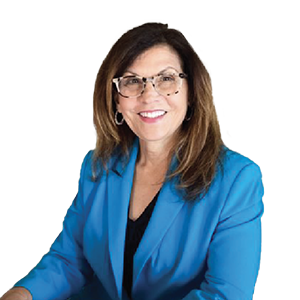
Instructor
Marisa Porto
The John S. and James L. Knight Chair in Local News and Sustainability, Professor Porto specializes in transforming organizations for the digital world.
MEJO 725: Media Innovation in Practice
What iterative design-thinking approaches work for entrepreneurship and innovation? Experience the start-up process that allows you to practice thinking creatively about how to develop original media products and services. Using elements of marketing, journalism, technology, public speaking and business, engage in a direct experience that will prepare you for the challenges of creating innovative products.
This course is designed to help you:
- Face extreme uncertainty
- Make quick decisions with limited information
- Fail early and often, and learn from those failures
- Receive and give direct feedback
- Assess the viability and sustainability of digital products and services
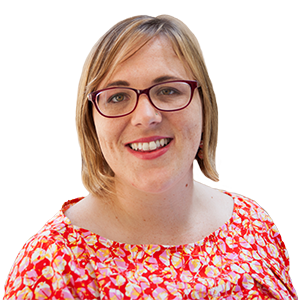
Instructor
Kate Sheppard
As a newsroom leader and educator, Professor Sheppard has a particular interest in developing sustainable business models for and facilitating audience engagement with news.
Fall 3
MEJO 992: Non-traditional Thesis
After completing coursework and a final examination, student work in the MADC culminates with enrollment in MEJO 992: Non-Traditional Thesis, a three-part final project that includes:
- A written proposal for the final project
- A written document that summarizes the final project
- A formal presentation and oral examination in which the student presents the completed work to his or her committee
The final project involves a study around an issue or challenge facing an organization or business with a digital media focus. It emphasizes both scholarly and practical application in line with the professional orientation of the program. The subject of the project may be the student’s employer.
Students complete the final project under the direction of a full-time UNC Hussman faculty member, who serves as chairperson of the student’s final project committee. Two additional faculty members and/or industry professionals join the chairperson on the committee.
The goal of this project is to provide you a platform to:
- Synthesize concepts and skills covered in the program
- Demonstrate mastery of the subject matter
- Apply knowledge to industry problems and concerns
- Receive substantive feedback on methodology and findings
Students have used their final projects to tackle real-world work challenges. Some program graduates have credited the project—and accompanying deliverable—as the key to a new job or promotion.